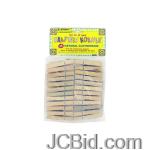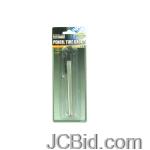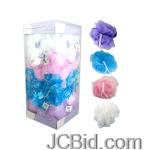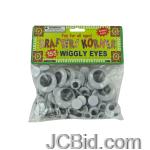| Directory > Business > Textiles and Nonwovens > Textiles > Resources > Articles and Studies > Processes Textile Structure Guide
Instruction guide for the identification of the various structures and manufacturing technologies
of woven and knitted, and nonwoven fabrics, created for students of the University of Minnesota's
College of Human Ecology. Concise technical descriptions. Animated presentations of seven different
weave patterns.
http://courses.che.umn.edu/00dha2213-1f/default.html
Reviews Rating: Not yet Rated
Whois Check
Improving Computer Control of Batch Dyeing Operations
Presentation of novel control algorithms, and specific simulation and experimental results for
fuzzy logic and adaptive control systems in textile dye houses. Authors: Brent Smith and Jun Lu.
PDF document.
http://www.p2pays.org/ref/03/02348.pdf
Reviews Rating: Not yet Rated
Whois Check
Chemistry and Technology of Fabric Preparation and Finishing
Monograph written for students of the textile industry, dealing with the chemistry and technologies
of yarn and fabric dyeing and finishing. Author: Dr. Charles Tomasino.
http://www.p2pays.org/ref/06/05815.pdf
Reviews Rating: Not yet Rated
Whois Check
The Future of Pollution Prevention
Review of present practices and an analysis of future needs and opportunities forpollution
prevention, as an alternative to costly waste treatments in the global textile wet processing
industry. Author: Brent Smith. PDF document.
http://www.p2pays.org/ref/01/00386.pdf
Reviews Rating: Not yet Rated
Whois Check
Best Management Practices for Pollution Prevention in the Textile Industry
Technical manual for best management practices for the prevention of pollution in the textile
industry. From the US Environmental Protection Agency. PDF document of 443 pages.
http://www.p2pays.org/ref/02/01099.htm
Reviews Rating: Not yet Rated
Whois Check
Identification and Reduction of Pollution Sources in Textile Wet Processing
Technical paper about the identification of pollutant sources in textile wet processing, and
suggestions of some management strategies by which source reduction can be accomplished. Author:
Brent Smith. PDF document.
http://www.p2pays.org/ref/02/01068.pdf
Reviews Rating: Not yet Rated
Whois Check
Pollution Prevention Studies in the Textile Wet Processing Industry
Investigation of pollution prevention opportunities in the textile wet processing industry, through
extensive audits at a commercial laundry, yarn processing, dyeing and finishing plants, and a
cotton dyeing and finishing plant. Authors: Ilse Hendrix and Gregory Boardman. PDF document.
http://www.p2pays.org/ref/01/00469.pdf
Reviews Rating: Not yet Rated
Whois Check
Membrane Technology in Textile Operations
Technical paper about the development and introduction of membrane seperation technology for the
removal of colors and chemicals from textile wet process wastewater. From Koch Membrane Systems.
Author: Douglas L. Woerner. PDF document.
http://www.p2pays.org/ref/04/03269.pdf
Reviews Rating: Not yet Rated
Whois Check
Surfactants - A Primer
Discussion paper about the behaviour of common types of surface active agents used in textile wet
processing. PDF document.
http://www.p2pays.org/ref/03/02960.pdf
Reviews Rating: Not yet Rated
Whois Check
Preliminary Industry Characterization: Fabric Printing, Coating and Dyeing
Draft paper of the US Environmental Protection Agency about the development of national emission
standards for hazardour air pollutants for the textile fabric printing, coating and dyeing
industries. PDF document.
http://www.p2pays.org/ref/01/00166.pdf
Reviews Rating: Not yet Rated
Whois Check
Novel Reactive Red Dyes
Technical paper about an investigation of dyes with two monochlorotriazine or with two
monochlorotriazine and two vinylsulphone reactive groups, to establish a possible enhancement of
the dyeability of cotton fabrics. From Autex Research Journal. Authors: E. Matyjas and E. Rybicki.
PDF document.
http://www.autexrj.org/No2-2003/0055.pdf
Reviews Rating: Not yet Rated
Whois Check
Wicking and Wetting in Textiles
Presentation of wicking model allowing a functional dependence of suction height on the parameters
of fiber bundles to be expressed in analytical form, and based on the simplified description of the
thread structure. From Autex Research Journal. Authors: Jakub Wiener and Petra Dejlova. PDF
document.
http://www.autexrj.org/No2-2003/0054.pdf
Reviews Rating: Not yet Rated
Whois Check
Sanforized & Sanfor Company
Detailed description of the trademarked, computer controlled compressive shrinkage technology for
textile fabrics. Shrinkage standards and guide to labeling. Summary of licensee agreement.
http://www.sanforized.biz/
Reviews Rating: Not yet Rated
Whois Check
Impact of Molecular Nanotechnology on the Textile Industry
Lecture on the future impact of nanotechnology on material properties and performance, and design
and manufacturing processes in the textile fabrics industry. Author: David R. Forrest.
http://www.salsgiver.com/people/forrest/IFAI_text.html
Reviews Rating: Not yet Rated
Whois Check
Bubble Size Distribution of Foam
Image analysis based study of the influence of several physical parameters on bubble size in foam
finishing of textile fabrics. From Autex Research Journal. Authors: C.W. den Engelsen, I.C. Isarin,
H. Gooijer, M.M.C.G. Warmoeskerken and J. Groot Wassink. PDF document.
http://www.autexrj.org/No3/0016.pdf
Reviews Rating: Not yet Rated
Whois Check
Biomimicking of Enzymes for Textile Wet Processing
Part of an ongoing "green chemistry" research project at the National Textile Center of
the Auburn University, focused on the development of simple biomimics that simulate glucose and
lignin oxidases, peroxidases and peroxidase enzymes, capable of achieving good wet processing
results and improving the retting process of flax fibers. Author: Gisela Buschle-Diller. PDF
document.
http://www.eng.auburn.edu/department/te/ntc/2002/C02A02.pdf
Reviews Rating: Not yet Rated
Whois Check
|





